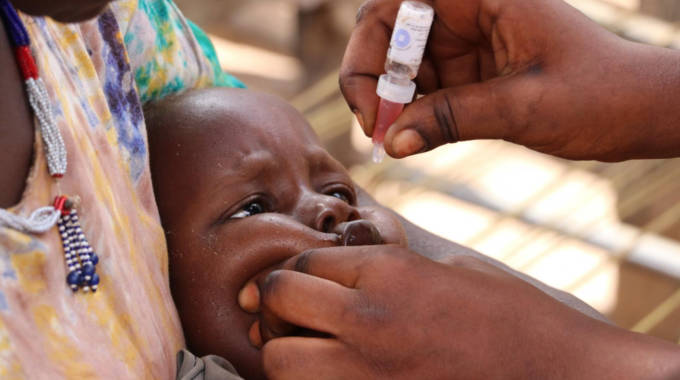
The ManicaPost

Ray Bande
Senior Reporter
“IT is the long history of humankind and animal kind that those who learn to collaborate and improvise most effectively will prevail.”
When renowned English geologist and biologist, Mr Charles Darwin, widely known for his contributions to evolutionary biology, uttered the above words, it probably had nothing to do with Southern Africa.
However, the unfolding healthcare challenges in recent years, epitomised by the cholera, polio and the Covid-19 pandemics, have shown the undeniable need for collaborative efforts in fighting diseases.
In terms of health diplomacy and governance, the pandemics have been a genuine call for creation of vibrant and consistent regional health diplomacy mechanisms as an emergent practice that should identify and understand trends that influence our regional public health, as well as capacity building for Southern African Development Community (SADC) member states, to support collective action to mitigate health risks.
Countries in the SADC region have remote areas, more importantly those lying along their border areas, where access to healthcare is often a challenge.
More importantly, people living in border lying areas have cross-border marriages, which makes it normal for people from either side of the border to cross the political boundaries in search of medical or educational services on the other side.
Given that scenario and how some diseases spread, it is common cause that prevention of the spread of diseases should involve an integrated regional approach.
For example, the polio virus is very contagious and spreads through person-to-person contact.
It spreads through contact with the stool of an infected person or droplets from a sneeze or cough.
Therefore, technically, Zimbabweans cannot be safe from polio if Mozambicans continue to grapple with the ailment, thus an attack on one is an attack on all of us.
The recent polio scare revealed that some households in Mozambique living in areas near the border with Zimbabwe have been struggling to get requisite medical care or vaccination due to the long distance they have to travel to get to the nearest health facility.
This is why Zimbabwe has been on a polio vaccination drive as the disease has been wreaking havoc in some parts of the SADC region.
Commendably, Zimbabwe healthcare officials went an extra mile in ensuring that our brothers and sisters in border lying areas in Mozambique got the necessary medical care.
Speaking during the Covid-19 and polio vaccination media sensitisation meeting held recently in Mutare, Ministry of Health and Child Care’s Manicaland provincial health promotion officer, Mrs Agnes Magumbate said some households in neighbouring Mozambique live more than 15km from the nearest health care facility.
Mrs Magumbate said this poses a challenge for them to access medical care in times of disease outbreaks like the polio or Covid-19 wave.
“When we engaged our Mozambican counterparts during our polio vaccination campaign, we discovered that some households are more than 15km from the nearest healthcare facility and that hindered their access to healthcare.
“This is why we engaged traditional leaders to mobilise people to be vaccinated,” said Mrs Magumbate.
In terms of health budgeting, Mrs Mugumbate said some of the people have dual citizenship and that means they are already included in Zimbabwe’s National Budget.
“Most of the people in border lying areas share many things and have many things in common, apart from the language. Some Mozambicans married on the other side of the border in Zimbabwe and the reverse is also true.
“More importantly, some have dual citizenship, meaning that they are already covered in the national budgets of both Mozambique and Zimbabwe,” she said.
Thus in this fight against healthcare challenges, collective defence means that an attack against one ally is considered an attack against everyone.
After all, alone we can do so little, together we can do so much!
Currently, Zimbabwe is on high alert for a possible cholera outbreak following similar outbreaks in neighbouring countries.
Ms Rudo Chikodzore, the director for epidemiology and disease control in the Ministry of Health and Child Care on Monday said there is currently a cholera outbreak in some countries in the SADC region, with over 43 000 cases and 1 400 deaths having been reported in the region since January this year.
In Zimbabwe, Chegutu, two cholera cases were reported in February.
“Due to the high human traffic across our borders, there is a high risk of importation of cases into the country, especially considering that Zimbabwe is a transit route for most SADC countries,” Ms Chikodzore said.
“The public is therefore advised to be on the alert for symptoms of watery diarrhoea among travellers from Malawi, Mozambique and Zambia, and alert their nearest health facilities for treatment,” she added.
This presents more evidence on the need for a collective approach in disease control and management, which goes beyond the above mentioned diseases to include the whole healthcare system in the SADC region.
The SADC region accounts for one-third of all people living with HIV and AIDS worldwide.
Eight SADC member States are among the countries with the highest rates of tuberculosis, while 75 percent of the SADC population is at risk of contracting malaria.
This trio of diseases is a major threat to sustainable development in the region.
Regional annual reports on HIV and AIDS, tuberculosis, and malaria all contribute to systems designed to monitor progress on combating these communicable diseases.
Overseeing all of these declarations and strategic frameworks is the Protocol on Health, established in 1999.
Article 9 of the Protocol on Health addresses communicable disease control, while Articles 10, 11, and 12 specifically look at HIV and AIDS, malaria, and tuberculosis.
The Protocol on Health advocates for member States to harmonise their policies for disease definition, notification, and management.
Member States also agreed to cooperate in establishing reference laboratories and sharing information on diseases and epidemics to contribute towards the reduction, elimination, and eradication of communicable diseases.
Thus, an integrated SADC regional approach in fighting diseases is our only way to fight these diseases.



